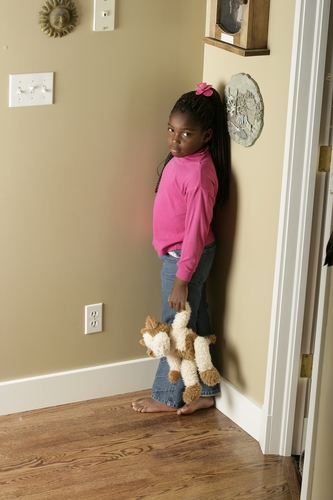Oftentimes aspies exhibit challenging behaviors just like any other child. However, aspies have other factors when it come to learning and emotions that render most traditional disciplinary methods ineffective; whether the discipline takes place in school, at home, or anywhere else.
This blog outlines some important considerations for effective aspie discipline.
-
Have at least one clear and clearly visible display of rules and family/classroom/organizational values.
Multiple copies around the places where the aspie spends a lot of time are best for quick reference. These displays can collectively serve as the baseline for personal conduct and its roots in the family’s beliefs. The belief system in the form of a display, as well as complementary personal experiences, constitutes the finest tool for the aspie to become self-actualized. This technique also helps the aspie not fall into disciplinary or belief traps in other places.
-
Bear in mind that an aspie is usually highly sensitive and cannot process nor emotionally tolerate a raised voice or raised words.
If this does happen, the aspie will likely develop chronic fear, learned helplessness, and resentment; among other toxic feelings. Thus, mindful, raised actions are most effective and reasonable.
-
Understand everything about a troubling situation before taking action; identify the real reasons behind the behavior and never make quick assumptions.
Additionally and most importantly, make sure that the aspie has an opportunity to learn what they must learn for long-term benefit. Ask the aspie the challenging questions and have explanations in order to transition the aspie from wrongful and emotional thinking to rightful and strategic thinking.
Peaceful conflict resolution is ideal and it gives the aspie a model for more appropriate behavior, considering the fact that they encode information literally. Finally, preparation for the most likely kinds of trouble, as well as proven practices, such as Positive Behavioral Intervention and Support, also serve as model techniques for resolution.
-
Be meticulous in each situation because all situations are unique.
The best perspective for the disciplinarian to adopt is to acknowledge how exactly the aspie handles new situations in general. Then you can use this knowledge, along with some already effective techniques, for maximum effectiveness in that specific situation.
These four techniques only scratch the surface of Asperger’s child discipline. However, there are some key questions that apply to ALL situations:
- Am I using the acronym THINK (Is it Truthful, Helpful, Insightful, Necessary, and Kind?)
- Do I fully acknowledge every real reason behind the child’s behavior?
- Am I being constructive and informative in my practices?
- Is the child not learning or distancing themself from me?
- Is this particular series of words in explanations working or do I have to articulate it differently?
- Is the child getting every opportunity to learn more about themself and about life lessons?
- Am I using holistic approaches to discipline in order to develop the child emotionally, mentally, socially, and spiritually (if applicable)?
- Am I allowing my child to have control, but not so much that they are out of control?
By Reese Eskridge
Reese Eskridge is a Production Technician with Fairville Products who is passionate about working in the sciences (biology) and wishes to take his work experiences further into the fields of Educational Neuroscience; Science Fiction; Freelance Writing; Disability Advocacy; Public Speaking; Leadership and Entrepreneurship. Aspergers101 is proud to offer the insights and perceptions of the talented Mr. Eskridge to our team of bloggers as he is a great example of living life on the spectrum to it’s fullest!



Lovely posts
Would welcome any regular email.
Are biomedical treatment options effective?
Hello Nazli,
Feel free to email me at reeseesk@udel.edu for further questions. We can work together. Also, I am more of a proponent of natural behavioral modification than biomedical treatments for discipline purposes (unless you are referring to something else).
Awesome. Extremely helpful. Thank you.
Discipline is the most challenging part of parenting my 6 yo aspie daughter. More posts on this topic with specific examples would be so helpful. It is really hard to find information about how to discipline an aspie child. Most of the time I feel like not being effective because we have the same problem behaviors almost daily. I try everything I know and I still feel inadequate.
Hello Sarah. My son is 17 and newly diagnosed a year ago. Unfortunate because it was missed for so long. He also has mild ADHD, Sensory Processing Disorder and GENERAL Anxiety Disorder as some Aspies do. Everything Aspies do is on a much higher level of thinking. Typically, Aspies are extremely rule minded and literal. I doubt that your 6 year old’s behavior is ill intented. There are a multitude of reasons why your child is behaving a certain way. Sensory, impulse control, fear are a few that come to mind. I found that sitting down and listening to be the best method in a very quiet place. Let you child know how much you love them first, then listen. Normally, it was one of their “triggers” that set off the behavior. It takes time and patience but you will learn so much in time. Thankfully, you found out early that you have a little Aspie, before low self esteem and depression manifest. I have learned more about myself from my Aspie child. Good luck.